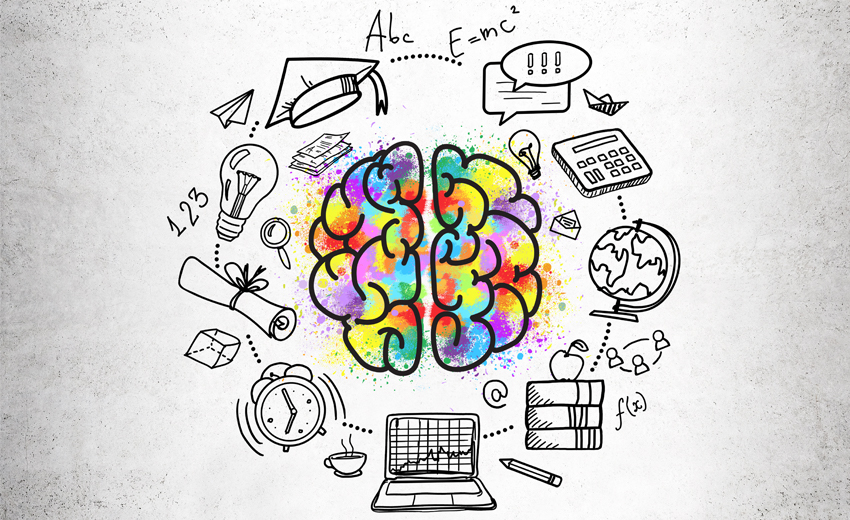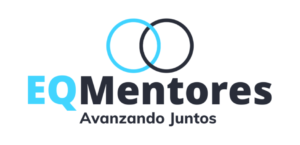
Psychology is like a living being that is constantly changing and evolving. We could say that psychology has a high level of resilience because it easily adapts to the challenges of today's society. An increasingly marked trend is Cognitive Neuroscience.
In this article we will define Cognitive Neuroscience and two other trends that are gaining more and more strength in this field and that the EQ Mentores team has caught our attention in recent months:
1. Cognitive Neuroscience
Neuroscience has been evolving and today it is like a fascinating adventure inside your own brain. Imagine that you are a scientific explorer of the mind within the field of Cognitive Neuroscience, using the latest discoveries in neuroscience and combining them with the secrets of cognitive psychology about how we perceive, think and remember.
On the other hand, Cognitive Neuroscience is defined as the discipline that seeks to understand how a brain process can give shape and course to mental activities: perception, memory, language and even consciousness (Albright and Neville, 2000; Gazzaniga , 1984, 1995, 2000b; Kosslyn and Andersen, 1992; Kosslyn and Shin, 1992; Posner and DiGirolamo, 2000; Waldrop, 1993). How do you think our Central Nervous System and our brain influence our health, education, work, economy and even our sports performance?
Knowing how the internal mechanisms of our mental and emotional center (psyche) work helps us to have greater and better management of our thoughts, emotions and particular actions. This understanding provides us with clear insight into our dysfunctional and maladaptive habits, allowing us to identify detrimental patterns that affect our decision making.

To what extent do you think that recognizing these patterns makes it easier for us to work on creating healthy and empowering habits? The new behaviors that we acquire thanks to therapeutic work contribute not only to improving the quality of our decisions, but also to significantly raising our quality of life, providing us with the necessary tools to face challenges more effectively, which builds greater well-being. sustainable.
2. Evidence-Based Psychotherapy
Evidence-Based Psychotherapy is like having a reliable map to explore the mind. This line explores therapies backed by solid studies that demonstrate their effectiveness. Imagine it's like choosing the best tool to solve a specific problem.
For example, if you are dealing with anxiety, the evidence supports cognitive-behavioral therapies, Exposure Techniques that seek to confront the patient with the origin of their anxiety in order to overcome it, and Jacobson's Progressive Relaxation Technique or Schultz's Autogenic Relaxation. It is similar to using the right key to open the door to a healthier mind. Therefore, this approach ensures that the strategies used have been tested and are effective, guiding you towards positive change backed by science.
Have you liked this article so far? Did you know the reach that Cognitive Neuroscience and Evidence-Based Psychotherapy are having? Let us know in the comments box.
3. Technology Applied to Psychology
New forms of technology are generating addictive behaviors in more and more young people. Despite this, Technology Applied to Psychology has made it possible in recent years to bring therapy to a more accessible and comprehensive level. Think of online therapy as having your psychologist within reach, giving you support when you need it.

In addition, technology has recently been used to analyze data and deeply understand the mental and emotional challenges of patients.
For example, emotional tracking applications can provide valuable information about psychoaffective state patterns. If you live in Colombia and do online psychotherapy, consider knowing this document called “TELEPSYCHOLOGY, Suggestions for training and responsible professional performance” issued by the Colombian College of Psychologists (Colpsic) and the Colombian Association of Psychology Faculties (Ascofapsi).
4. New Therapies and Approaches
Finally, in addition to Cognitive Neuroscience and Evidence-Based Psychotherapy, Acceptance and Commitment Therapy (ACT) developed by Steven C. Hayes, Kelly G. Wilson and Kirk D. Strosahl and Functional Analytic Psychotherapy (FAP) by Robert Kohlenberg and Mavis Tsai are some of the therapies that have been demonstrating effective results in patients with anxiety and depression disorders.
Likewise, in patients with eating disorders, relational disorders, among others. If you want to know more about these two types of therapy, let us know in the comments box.
⭐️ BONUS INFO
Additionally, new trends aim to move away from radical or traditional therapies to seek an understanding of comprehensive psychotherapy by 2024. They will also highlight competencies such as creative thinking and critical thinking that allow us to go beyond the obvious. A holistic approach that considers mind, body and spirit is expressed as a basis for the development of emotional competencies and proactive integration as a strategy for personal and professional development. This 360° approach seeks to balance certain technical skills with levels of emotional intelligence (EQ: Emotional Quotient) for sustainable success in the modern world of work.
3 QUESTIONS
Challenge of the week! Answer the following questions in the comment box. Share your experience and contribute to the community, giving what you have received on your inner journey. Act now! 💬🚀
1. Did you update your knowledge with these trends and which ones do you think we were missing?
2. Which ones did you know and which ones you didn't?
3. What currents and trends would you like us to explore in future content?
I hope you have a great day!
Creation and Writing: Ruben Echavarria
Review and SEO: Aleja Ordóñez
If you liked this article, leave your comments and tell us what were Albert Ellis's practical advice that you most need to put into practice starting today?
👉 Are psychologist, coach or trainer yqDo you want to apply to participate in the EQ Mentores Online Podcast to interview you about the topics you like most and share them with our community? Write to us via WhatsApp
👉 Are you a psychologist or coach and want to apply to work with us? Write to us via WhatsApp
👉 Subscribe to the EQ Mentores Personal and Professional Development Newsletter by clicking here for:
☑️ Receive News, Trends, Digital Resources, Discounts, and invitations to in-person and online Events and Certifications at the National and International level in Psychology, Coaching, Leadership and Mentoring.
☑️ Apply to participate in the EQ Mentores Podcast
☑️ Receive “Living Better” MiniCourse
You sign up?
👉 Follow us on Social Networks by clicking here where we publish reflections and other surprises.
⚠️ Do you feel like you are trying hard but you are not making progress in your personal, academic, professional development or in your entrepreneurship?
Do you want to reach your goals without taking so many turns? Do you want to achieve results, but don't know where to start? Did you know that one of the best decisions you can make is to invest in yourself to increase your ability to achieve more and receive more?
Ask about our online consulting programs in different countries for the general public and for professionals.

⭐ Psychology, Coaching and Mentoring at another level.
Schedule your first appointment virtually or by phone and save time and money on travel.


